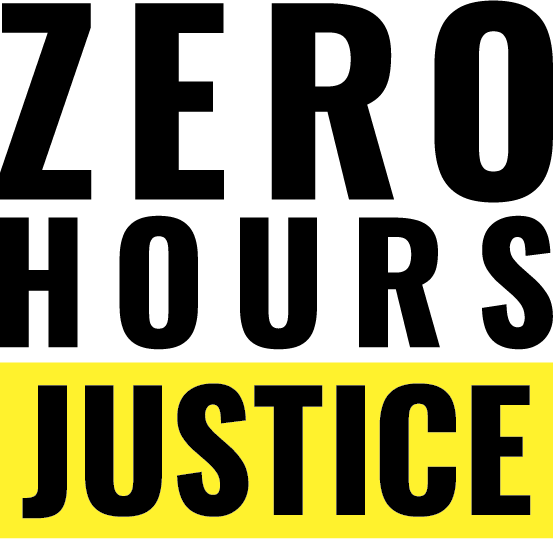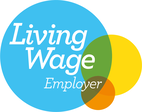|
We fully accept that some workers who have a separate source of income or help from wealthy parents are happy to be engaged on a zero hour contract.
What we are fighting to end is the practice where such contracts are unilaterally imposed because the great majority of workers rely on such employment as a primary source of income and thus loathe their precarious position. More people than ever before are being exploited by zero hours contracts in the UK today and suffer as a result. |
With many companies looking to keep staff costs low and their profits up, the impact on these individuals is huge - living day-to-day without knowing whether they will earn enough money to pay for food and rent. The public sector is thought to be the biggest user of zero hours contracts, so there is also a question of whether our taxes are being spent in an ethical way.
It should not be socially acceptable for people to be employed on this basis and for organisations to have such a lack of care for the people who work for them. |
Our Aims
|
Ultimately, our goal is to seek a complete ban on zero hours contracts (unless entered into freely by the worker).
However, under the current UK Government, we believe it will be hard to pass legislation to end zero hours contracts. Therefore, as a realistic, short-term aim, we seek to persuade as many organisations as possible to implement the following minimum criteria, as laid down by the Good Business Charter. We see this as a fairer, interim solution to the problem of unilaterally-imposed zero hours contracts that has been agreed by both the CBI and the TUC: |
Cancellation of shifts
Guaranteed hours
|
IF YOU ARE AN EMPLOYER AND CAN COMMIT TO NOT USING ZERO HOURS CONTRACTS OR OUR MINIMUM CRITERIA ABOVE, CLICK BELOW TO APPLY FOR ACCREDITATION AS A NO ZERO HOURS OR FAIRER HOURS EMPLOYER
what are zero hours contracts?
A zero hours contract is regarded by some as one type of flexible working arrangement. It is legally defined in the United Kingdom as a contract for employment or other worker's contract under which:
Prior to 2015, a zero hours worker was distinct from a casual worker or agency worker in that a zero hours worker could be prohibited by the employer from working for another organisation, while under contract, even if the first employer was not able to provide work. In 2015, such exclusivity clauses in zero hour contracts were declared to be unenforceable. As a result, any type of PAYE work which is not guaranteed by the employer and where the employee or worker is not obliged to take it up if offered arguably falls within the definition of "zero hours contract".
A number of organisations and sectors use other terms - bank worker (NHS), peak day contracts (IKEA), variable hours contract to name a few - but these generally satisfy the legal definition of zero hours contracts.
- the employer does not guarantee that work will be available; and
- the employee or worker is not obliged to take up work if offered.
Prior to 2015, a zero hours worker was distinct from a casual worker or agency worker in that a zero hours worker could be prohibited by the employer from working for another organisation, while under contract, even if the first employer was not able to provide work. In 2015, such exclusivity clauses in zero hour contracts were declared to be unenforceable. As a result, any type of PAYE work which is not guaranteed by the employer and where the employee or worker is not obliged to take it up if offered arguably falls within the definition of "zero hours contract".
A number of organisations and sectors use other terms - bank worker (NHS), peak day contracts (IKEA), variable hours contract to name a few - but these generally satisfy the legal definition of zero hours contracts.
It's time to make a change
How exactly are zero hour workers impacted?
- With large parts of the UK having little or no access to social housing, zero hour contract workers find it extremely difficult to obtain a place to live through the private sector because of their irregular and unguaranteed income.
- Zero hour contract workers face great uncertainty and stress about their working hours on a daily basis.
- Zero hour contract workers can rarely access bank loans and mortgages because of their lack of guaranteed hours and income.
- Zero hour contract workers are much less likely to receive the employment rights they are legally entitled to, such as sick and holiday pay.
- Zero hour contract workers are much more vulnerable, feel greater insecurity and suffer far more mental health issues than workers with guaranteed hours.
- Zero hour contract workers are much less likely to be able to readily access benefits to which they are entitled, causing financial debt.
We encourage positive change
Across the UK, we see many businesses and organisations who have chosen not to use zero hour contracts and who foster a positive culture. This is to be encouraged. Surely it is common sense that a workplace with workers on secure fixed hour contracts is a happier one, and one that will achieve better results?
In contrast, it is of no surprise to hear that workers with little job security are likely to be less committed to organisational goals or to put in extra effort where it is required.
In contrast, it is of no surprise to hear that workers with little job security are likely to be less committed to organisational goals or to put in extra effort where it is required.







